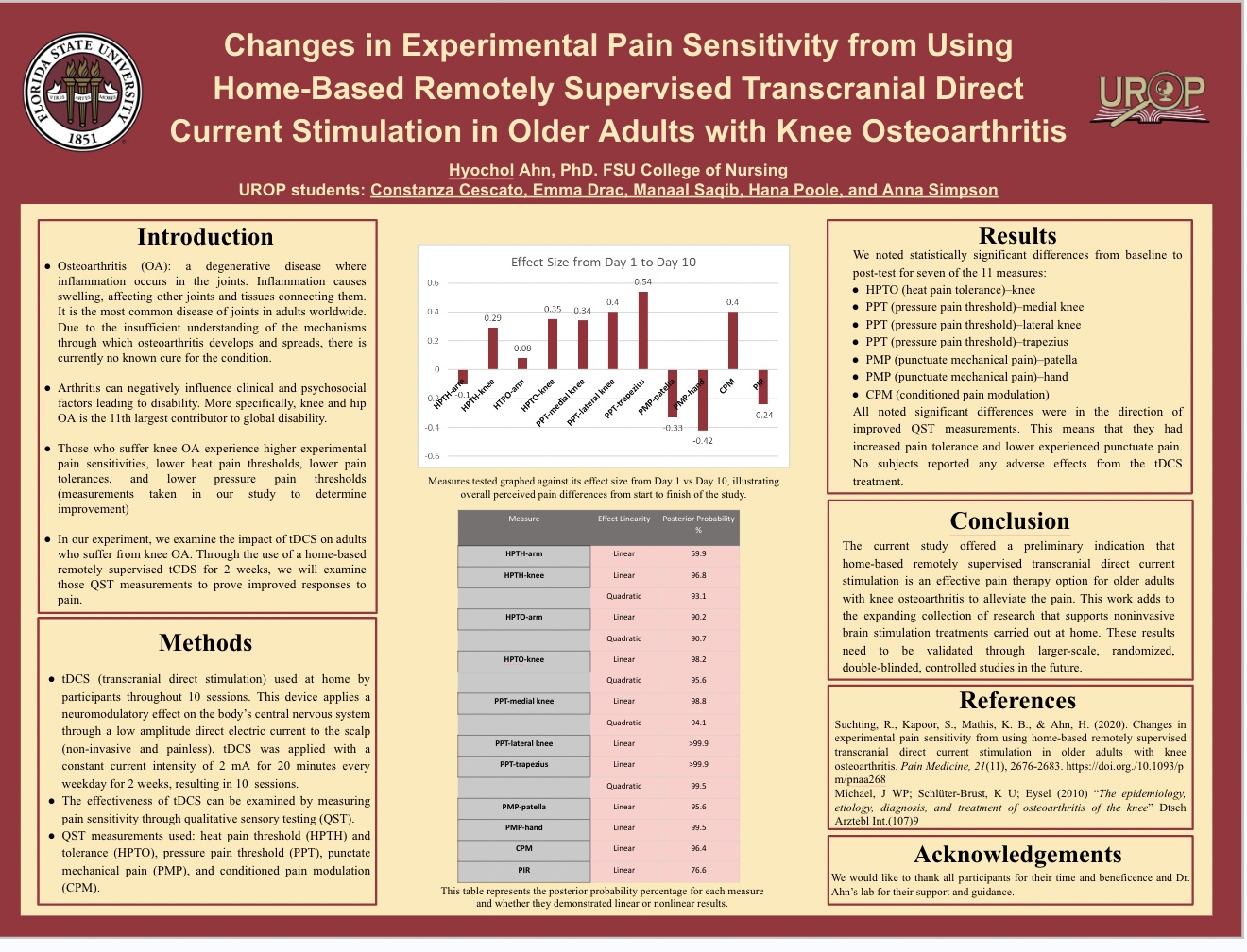Research Symposium
23rd annual Undergraduate Research Symposium, April 6, 2023
Emma Drac Poster Session 4: 4:00 pm - 5:00 pm/ Poster #12

BIO
Hi! My name is Emma Dracand I'm from Boca Raton, Florida. This is my second year at FSU and I am seeking a major in Biology with an integrated chemistry minor. I am primarily involved with the UROP and Honors Program. Additionally, I am on the Pre-Medical track with hopes of working in women's health. I like to go to concerts, bake, and spend time with my family.
Changes in Experimental Pain Sensitivity from Using Home-Based Remotely Supervised Transcranial Direct Current Stimulation in Older Adults with Knee Osteoarthritis
Authors: Emma Drac, Hyochol AhnStudent Major: Biology
Mentor: Hyochol Ahn
Mentor's Department: Nursing Mentor's College: College of Nursing Co-Presenters: Constanza Cescato, Hana Poole, Anna Simpson, and Manaal Saqib
Abstract
Transcranial direct current stimulation (tDCS) involves a directed low-amplitude electrical current to affect the activity of the motor cortex and supraorbital region in the brain. Increasing ranges of literature support that mindfulness-based meditation (MBM) assists in providing analgesia-like effects for pain. In this study, 30 subjects with chronic osteoarthritis (OA) knee pain aged 50 to 85 years utilized self-administered tDCS and performed meditative exercises to treat their pain symptoms. Combining MBM and tDCS has rarely been studied, despite knee OA being the most prevalent joint disease. On every weekday for two weeks (10 days), subjects remotely participated in 20-minute sessions of tDCS at a constant current intensity to the motor cortex and supraorbital regions along with MBM exercises. Researchers measured the subjects' heat, pain, and pressure tolerances using a visual analog scale, pain questionnaires, quantitative sensory testing, and current stimulation devices for 3 days within 10 days, in addition to their pain symptoms. Pain levels and OA symptoms were measured using a Numeric Rating Scale and the Western Ontario and McMaster Universities Osteoarthritis Index. The results indicated improvement in osteoarthritis pain symptoms and sleep quality, no effect on anxiety or depression, and no adverse effects caused by tDCS. Self-administered tDCS monitored remotely was found to be successful with older patients. tDCS combined with MBM decreased results on the Numeric Rating Scale and Western Ontario and McMaster Universities Osteoarthritis Index.
Keywords: knee osteoarthritis, meditation, transcranial direct current stimulation


